View All SNAPP Teams
To learn what SNAPP Teams are and why they do their work, see The SNAPP Team Approach and About SNAPP Teams.
SNAPP Teams
| Team Name | Status | Region | Critical Challenge |
|---|---|---|---|
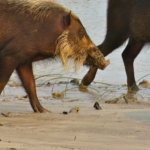 African Swine Fever in South-East Asia
African Swine Fever in South-East Asia
How can African Swine Fever be detected, prevented, and controlled in endemic and endangered wild pig populations, vital to ecosystems and rural communities? |
New | Asia-Pacific | Social Innovations |
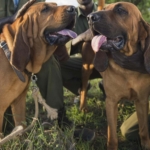 Deterring Wildlife Crime
Deterring Wildlife Crime
Do deterrence strategies work to prevent wildlife trafficking? |
New | Global | Social Innovations |
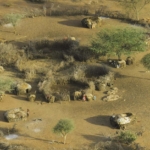 CBNRM Governance & Economics
CBNRM Governance & Economics
How can Community-Based Natural Resource Management (CBNRM) institutions be re-built to strengthen the social fabric of rural communities and expand the wildlife economy to address multi-dimensional poverty? |
New | Social Innovations | |
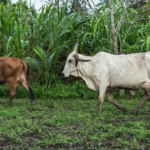 Sustainable Cattle Ranching in Colombia
Sustainable Cattle Ranching in Colombia
What are the real-world social-ecological outcomes of silvopasture transformation in Colombia? How can this evidence be utilized to inform farm planning tools and policy targets to benefit nature, climate, and human wellbeing? |
New | Latin America | Food and FreshwaterSocial Innovations |
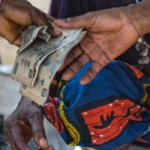 Sustainable Wild Meat Management
Sustainable Wild Meat Management
How can Central African wild meat policies be adapted and strengthened to support sustainable use and ensure the persistence of Central Africa’s wildlife? |
Ongoing | Africa | Food and Freshwater |
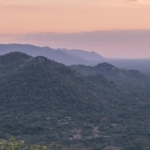 The Social Implications of 30×30
The Social Implications of 30×30
What are the implications for resident people of plans to greatly increase global protected and conserved area coverage, and how might these be addressed to maximize positive outcomes for nature and society? |
Ongoing | Food and FreshwaterSocial Innovations | |
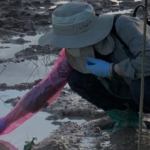 Wildlife Health Intelligence Network
Wildlife Health Intelligence Network
Can we effectively strengthen wildlife health surveillance globally through a collaborative and evidence-based consortium of local, national, and international organizations? |
Ongoing | Global | Social Innovations |
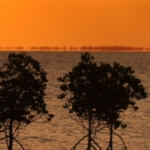 Governing Changing Oceans
Governing Changing Oceans
How can improved marine governance guide more responsible, equitable, and effective interventions in climate-impacted oceans? |
Ongoing | Asia-Pacific | Climate ResilienceSocial Innovations |
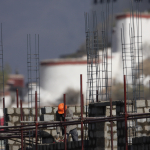 BRI Biodiversity Toolkit
BRI Biodiversity Toolkit
What tools can help make sure the Chinese Belt and Road supports biodiversity conservation as well as human well-being? |
Ongoing | Social Innovations | |
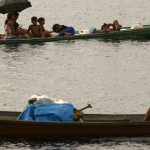 Natural Resource Governance
Natural Resource Governance
What practical guidance can help strengthen community-level natural resource governance systems? |
Completed | Africa, Asia-Pacific, Latin America | Social Innovations |
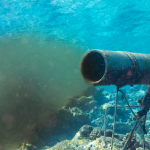 Improving Coastal Health
Improving Coastal Health
What wastewater pollution guidelines and sanitation planning strategies will enable sanitation and conservation practitioners to work together to improve both human and marine ecosystem health? |
Completed | Global | Ocean Sustainability |
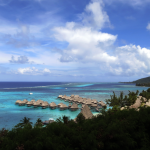 Advancing Coastal Defenses
Advancing Coastal Defenses
How and where can natural ecosystems provide effective flood risk reduction benefits? |
Completed | Global, North America, Asia-Pacific | Climate Resilience |
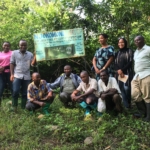 Wildlife Corridor Restoration
Wildlife Corridor Restoration
What evidence is required for wildlife corridor restoration interventions in human-inhabited landscapes, and how do we include these in the restoration management process? |
Completed | Africa | Social Innovations |
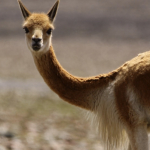 Andean Camelid Disease
Andean Camelid Disease
What management actions will promote both human livelihoods and the health of vicuñas and guanacos, in the face of disease and other threats? |
Completed | Latin America | Social Innovations |
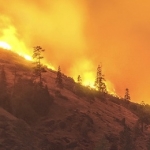 Wildfires and Human Health
Wildfires and Human Health
What are consensus-driven, evidence-based approaches to identify and communicate the human health implications of wildfires versus ecological restoration-focused forest management, including managed fires? |
Completed | North America | Climate Resilience |
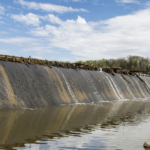 Saving Our Rivers
Saving Our Rivers
Can we transition the power sector to reliable renewable energy sources without damming the world's remaining free-flowing rivers critical for freshwater biodiversity and people's livelihoods? |
Completed | Latin America | Climate Resilience |
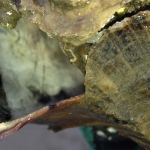 Conservation Aquaculture
Conservation Aquaculture
What are the social and ecological trade-offs of using aquaculture as a conservation tool for marine foundation species, and what are the responsible methods for using this approach? |
Completed | North America, Global | Ocean SustainabilityFood and Freshwater |
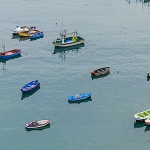 Climate Resilient Fisheries
Climate Resilient Fisheries
What key features support fisheries’ resilience to climate change impacts, and how can these features be recognized and enhanced in marine fishery management systems? |
Completed | Global | Climate ResilienceOcean Sustainability |
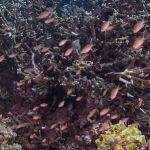 Coastal Outcomes
Coastal Outcomes
When does coastal conservation produce positive outcomes for people and nature, and what are the co-benefits and tradeoffs between multiple outcomes? |
Completed | Asia-Pacific | Ocean SustainabilitySocial Innovations |
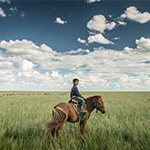 Steppe Health
Steppe Health
Can diverse stakeholders stop a fatal viral epidemic threatening endangered wildlife and livestock critical to over half the people in Mongolia? |
Completed | Food and FreshwaterSocial Innovations | |
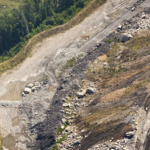 Appalachian Coalfields
Appalachian Coalfields
How can economic development, human well-being, and environmental sustainability be balanced in the Central Appalachian Coalfields region? |
Completed | North America | Climate ResilienceSocial Innovations |
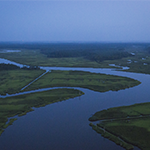 Water Flow Impact
Water Flow Impact
How can nature-based solutions alleviate the risks posed by both water shortages and excess water? |
Completed | Global | Food and FreshwaterClimate Resilience |
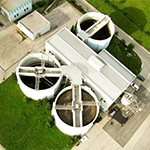 Water Sanitation and Nature
Water Sanitation and Nature
How can nature-based interventions be used to help billions of people access sanitation and higher quality water? |
Completed | Global | Food and Freshwater |
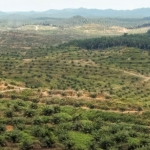 Zero Deforestation Landscapes
Zero Deforestation Landscapes
Can innovative mapping tools help agricultural producers and companies meet commitments to zero-deforestation supply chains? |
Completed | Asia-Pacific | Social InnovationsFood and Freshwater |
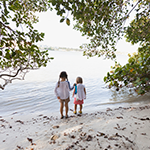 Coastal Defenses
Coastal Defenses
How do coastal habitats reduce the risks posed to people and property by sea-level rise and natural hazards and how can these habitats be used to create more cost-effective natural solutions? |
Completed | Global, Caribbean | Ocean SustainabilityClimate Resilience |
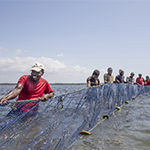 Fisheries Measures
Fisheries Measures
How can fisheries managers know they are achieving food security goals when they lack sophisticated fish stock data? |
Completed | Latin America, Asia-Pacific, Africa, North America | Ocean SustainabilityFood and Freshwater |
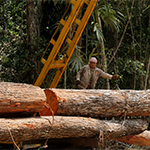 Forest Sharing or Sparing?
Forest Sharing or Sparing?
How can conservation and human well-being outcomes be maximized while meeting timber demand in the tropics? |
Completed | Asia-Pacific, Latin America | Climate ResilienceSocial Innovations |
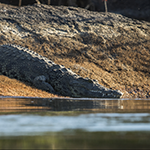 Making Ecosystems Count
Making Ecosystems Count
How do changes to the natural environment impact food security, livelihoods, and other aspects of human well-being? |
Completed | Africa | Social Innovations |
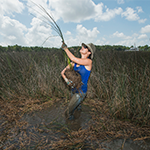 Coastal Restoration
Coastal Restoration
How can coastal habitat restoration efforts be better aligned with nature conservation and the provision of societal benefits? |
Completed | North America | Ocean SustainabilityClimate Resilience |
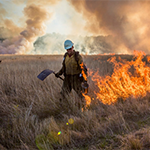 Fire Research Consensus
Fire Research Consensus
Where can scientific consensus immediately support actions to increase ecosystem resilience in fire-prone landscapes in the context of climate change-related uncertainties? |
Completed | North America | Climate Resilience |
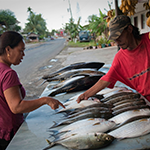 Assessing Biocultural Indicators
Assessing Biocultural Indicators
How can resilience indicators, defined using a biocultural approach, be used to learn how Pacific communities will cope with future change and inform specific interventions that prioritize both nature and human well-being? |
Completed | Asia-Pacific | Social Innovations |
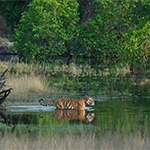 Landscape Connectivity in India
Landscape Connectivity in India
What approaches can decision-makers and planners use to ensure that the needs of rural infrastructure and economic development in India is not achieved at the expense of landscape connectivity for wildlife? |
Completed | Asia-Pacific | Social Innovations |
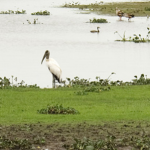 Land Use Change in the Orinoquía
Land Use Change in the Orinoquía
How can stakeholders meet agricultural development goals while maintaining natural benefits associated with the savanna biome of Colombia’s Eastern Plains? |
Completed | Latin America | Food and Freshwater |
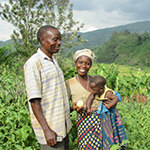 Rwanda Natural Capital Accounting
Rwanda Natural Capital Accounting
How can natural capital be integrated into Rwanda’s national economic accounts to help reach their 2020 goal to reduce poverty below 30% and sustain 11.5% annual economic growth? |
Completed | Africa | Social Innovations |
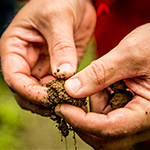 Managing Soil Organic Carbon
Managing Soil Organic Carbon
Can healthy soil promote healthy ecosystems in rangelands and croplands? |
Completed | North America | Climate ResilienceFood and Freshwater |
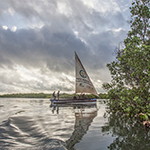 Data-limited Fisheries
Data-limited Fisheries
Can new, inexpensive science-based tools for assessing and managing data-limited fisheries be widely implemented to help end overfishing? |
Completed | Latin America, Africa, Asia-Pacific | Ocean SustainabilityFood and Freshwater |
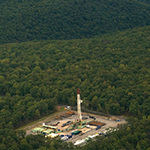 Hydraulic Fracturing
Hydraulic Fracturing
How can industry and nature conservation collaborate to avoid conflicts between shale energy development and the need for clean, safe water? |
Completed | North America | Food and Freshwater |
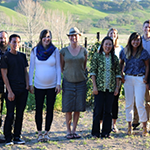 Evidence-based Conservation
Evidence-based Conservation
How can science be used to strengthen evidence-based policy and practice related to conservation efforts affecting human well-being? |
Completed | Global | Social Innovations |
 Economics of Chinese Ivory Trade
Economics of Chinese Ivory Trade
Is the ivory market in China a demand- or supply-side driven market and what are the implications for the economics of regulation? |
Completed | Asia-Pacific | Social Innovations |
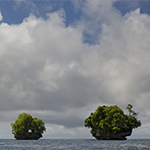 Ridges To Reefs Fisheries
Ridges To Reefs Fisheries
Where can cost-effective conservation help secure fish populations and coastal economies that are experiencing negative effects from multiple land uses? |
Completed | Asia-Pacific | Ocean SustainabilityFood and Freshwater |
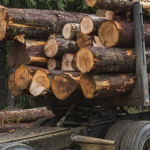 Compensatory Conservation
Compensatory Conservation
Which compensatory conservation program conditions and methods most effectively protect biodiversity and ecosystem services? |
Completed | Global, Latin America, Africa, Asia-Pacific | Social Innovations |
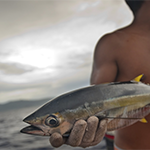 Open Ocean Aquaculture
Open Ocean Aquaculture
How can aquaculture meet growing demand for seafood while being environmentally and socio-economically sustainable? |
Completed | Latin America, North America | Ocean SustainabilityFood and Freshwater |
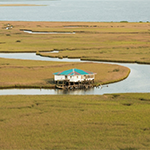 Ecosystem Services and Biodiversity
Ecosystem Services and Biodiversity
What key changes to existing tools for documenting, measuring, and valuing ecosystem services will boost their use in Key Biodiversity Areas and strengthen the safeguard of these important sites? |
Completed | Asia-Pacific, North America | Social Innovations |
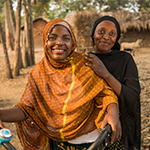 Sustainable Agricultural Intensification
Sustainable Agricultural Intensification
How can Tanzania intensify agricultural production while protecting biodiversity and ecosystem services at both landscape and regional scales? |
Completed | Africa | Food and Freshwater |
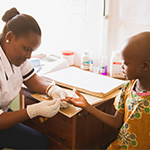 Ecological Levers for Health
Ecological Levers for Health
Can solutions that target human and environmental problems simultaneously advance conservation goals and reduce humans disease burdens? |
Completed | Global | Social Innovations |
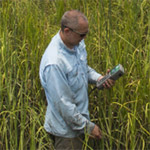 Better Land Use
Better Land Use
Will comparing tradeoffs among multiple land use options and relative values lead to greater, more durable returns for the prosperity of nature and people? |
Completed | Latin America, North America | Social InnovationsFood and Freshwater |
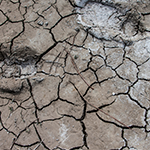 Ecological Drought
Ecological Drought
How does incorporating ecological sensitivity into drought relief planning improve longer term outcomes for people and nature? |
Completed | North America | Climate Resilience |
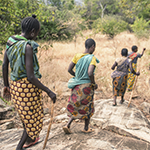 Food and Forests in Africa
Food and Forests in Africa
What interventions can help governments deliver on both food production and forest conservation targets, while providing more equitable distribution of the benefits? |
Completed | Africa | Food and FreshwaterSocial Innovations |
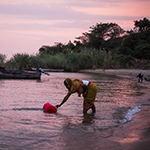 Water Security
Water Security
Where can water funds – user investments to protect upstream watersheds and sources – benefit conservation, sustainable economic growth, and human well-being? |
Completed | Latin America | Food and Freshwater |
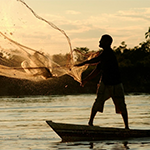 Amazon Waters
Amazon Waters
How can connectivity in the Amazon Basin be maintained to support human well-being, wildlife, and the environments on which they depend? |
Completed | Latin America | Food and Freshwater |
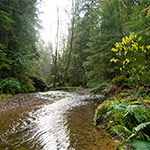 Sharing Water
Sharing Water
Can multi-sector benefits from water transaction programs be measured in a standardized way, and if so, might transparency around the benefits help drive multi-sector collaboration? |
Completed | North America | Food and Freshwater |